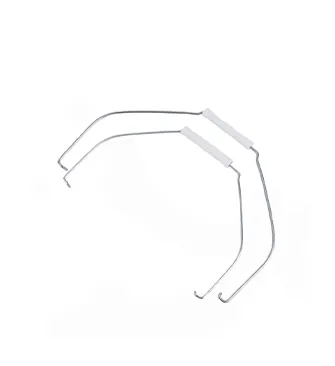-
 Phone:
Phone: -
 Email:
Email:

Exploring the Versatility and Applications of Bailing Wires in Various Industries and Projects
Understanding Bailing Wires A Key Component in Waste Management
Bailing wires play a crucial role in waste management, particularly in the recycling industry. These wires, typically made from steel or other durable materials, are essential for compacting and securing bales of recyclable materials such as paper, cardboard, plastics, and metals. By understanding the applications, benefits, and features of bailing wires, we can better appreciate their importance in facilitating efficient recycling processes.
What Are Bailing Wires?
Bailing wires are heavy-duty wires designed for binding bales of dry materials. They are generally wire strands with a high tensile strength, ensuring they can withstand the pressure of compaction during the bailing process. The wires are commonly used in balers, machines that compress recyclable materials into compact bundles or bales for easier handling and transportation. The bales formed are then transported to recycling facilities, where they are processed and repurposed.
Applications in the Recycling Industry
The primary application of bailing wires is in the recycling and waste management industry. They are integral to various processes, including
1. Paper and Cardboard Recycling Bailing wires help secure bales of cardboard and paper, which are then shipped to recycling plants. These bales require robustness to endure transportation and processing without falling apart.
2. Metal Recycling In metal recycling operations, bailing wires are used to bundle scrap metals. Proper binding is essential, as it ensures that the materials do not scatter during transport.
3. Plastic Recycling Similar to paper and cardboard, plastics must also be tightly bound into bales to maximize shipping efficiency. Bailing wires provide the necessary strength to hold the materials together.
Benefits of Using Bailing Wires
Bailing wires offer numerous benefits that enhance recycling operations
bailing wires

- Strength and Durability Made from high-grade materials, bailing wires are designed to be strong and resistant to wear and tear. This durability ensures that the bales remain intact throughout the collection and transport process.
- Efficiency in Handling The use of bailing wires allows for more manageable bundles, making it easier for workers to handle and move bales. This efficiency reduces labor costs and speeds up the recycling process.
- Space Optimization Compact bales take up less space than loose materials, which helps in maximizing storage and transportation efficiency. This aspect is vital for recycling centers that deal with large volumes of waste materials.
- Environmental Impact By facilitating efficient recycling practices, bailing wires contribute to reducing the overall environmental footprint. Efficient recycling processes mean less waste ends up in landfills and more materials are reused, decreasing the demand for new raw materials.
Features to Consider When Choosing Bailing Wires
When selecting bailing wires, it is important to consider several factors to ensure optimal performance
- Wire Gauge and Strength The thickness of the wire, measured in gauge, directly impacts its strength and suitability for different materials. For heavier materials, thicker wire is recommended.
- Coating and Corrosion Resistance In some environments, wires may be exposed to moisture and other corrosive elements. Choosing wires with a protective coating can enhance longevity.
- Tying Mechanism Different balers use various tying mechanisms, such as manual or automatic systems. Ensure that the bailing wires are compatible with the baler being used.
Conclusion
Bailing wires are more than just simple binding materials; they are an integral part of the recycling ecosystem. Their strength, durability, and ability to promote efficiency make them essential to modern waste management practices. As the world continues to focus on sustainable solutions and reducing waste, the role of bailing wires in recycling processes will become even more significant. Understanding their application and benefits can help industries optimize their recycling efforts, contributing to a cleaner environment for future generations.
-
Wire Mesh for Every Need: A Practical SolutionNewsJul.25,2025
-
Steel Fences: Durable, Secure, and Stylish OptionsNewsJul.25,2025
-
Roll Top Fencing: A Smart Solution for Safety and SecurityNewsJul.25,2025
-
Cattle Farm Fencing Solutions for Maximum SecurityNewsJul.25,2025
-
Affordable Iron Binding Wire SolutionsNewsJul.25,2025
-
Affordable Galvanized Wire SolutionsNewsJul.25,2025
-
Wire Hanger Recycling IdeasNewsJul.25,2025








